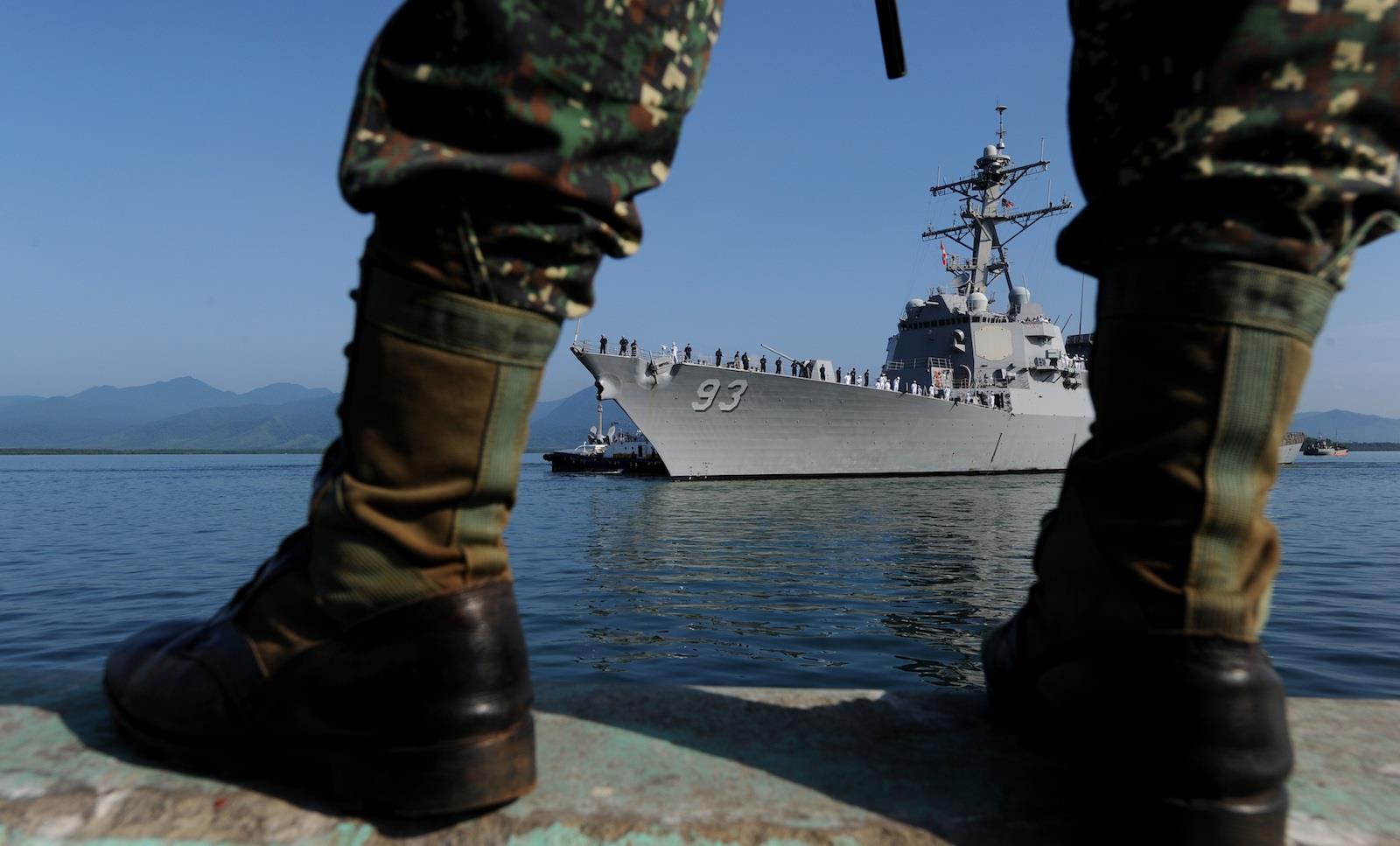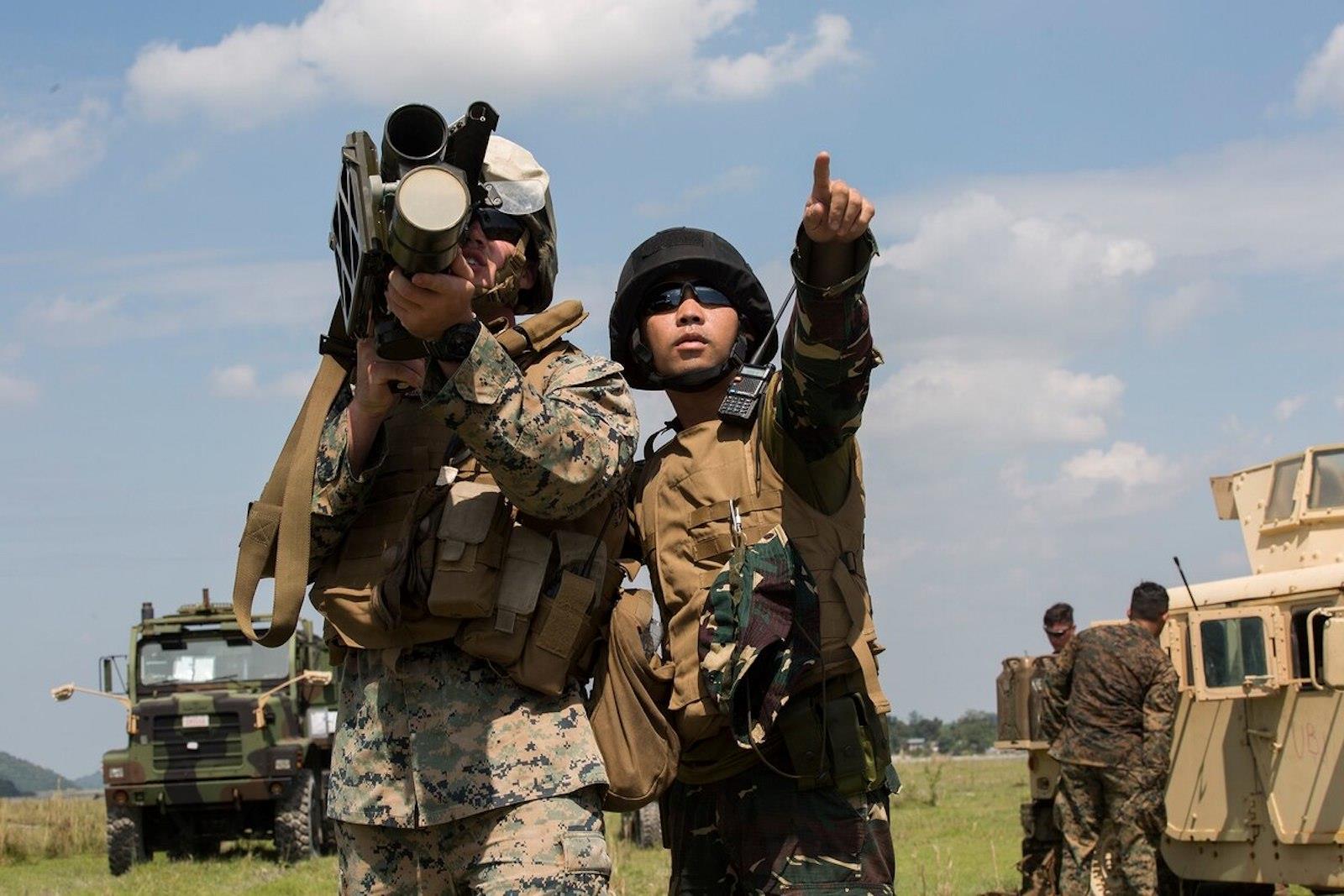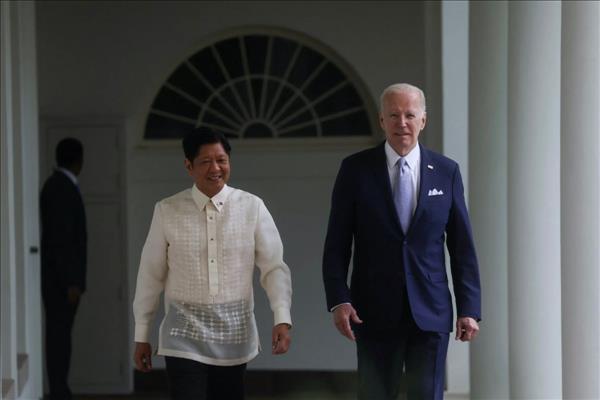(MENAFN- Asia Times) After a much-anticipated meeting in the White House, US President Joe Biden and his Filipino counterpart Ferdinand Marcos Jr praised“the remarkable ties of friendship, community, and shared sacrifice that serve as the foundation of the US-Philippines alliance.”
Amid rapid restoration of bilateral ties following six years of pro-Beijing policies under former Philippine President Rodrigo Duterte, the two allies“welcome[d] the historic momentum in US-Philippine relations” and stated a shared commitment to“continue expanding engagement and cooperation on all issues of common concern.”
After exchanging warm words, with Biden affectionately telling his Filipino guest how“[I] can't think of a better partner to have than you”, the two sides vowed to“remain the closest of allies” and continue“working together to deliver a better future for our citizens and tackle the emerging challenges of the twenty-first century.”
However, apart from the bonhomie and superlatives, the much-vaunted confab produced largely vague promises of deeper strategic cooperation. Notwithstanding the laundry list of bilateral initiatives, both sides fell short of committing on key outstanding issues.
For its part, the White House didn't provide any concrete trade and investment initiatives, including on a long-pending bilateral free trade deal with the Philippines.
For his part, Marcos Jr made it clear through generic statements and strategic equivocation that he isn't ready to fully side with the US against a resurgent China. Despite big pronouncements in recent months, the two allies are still ironing out key details of an expanded enhanced defense cooperation agreement (edca).
Just days after hosting South Korean President Yoon Suk Yeol, which produced a series of consequential agreements on nuclear non-proliferation and defense cooperation, Biden turned on the charm for his next Asian guest.
“You know, when we met in New York last year, you told me that - that a strong alliance has to continue, quote - I'm using your phrase - 'to evolve as we face the challenges of this new century.' And we are facing new challenges. And I can't think of any better partner to have than you,” Biden told Marcos Jr, referring to their meeting on the sidelines of the United Nations General Assembly last year.

President Ferdinand Marcos Jr meets US President Joe Biden in a bilateral meeting on the sidelines of the UN General Assembly on September 22, 2022. Photo: Office of the Press Secretary / Handout / File
As the namesake son of a former Filipino strongman, Marcos Jr was no stranger to either Washington DC or the White House. As the once heir-apparent, he often accompanied his parents, Ferdinand Marcos Sr and First Lady Imelda Marcos, to countless visits across the world, from China to America.
Nevertheless, Marcos Jr was the first Filipino leader to visit the White House in years. His predecessor, Rodrigo Duterte, once described the US as“lousy” and stubbornly fulfilled his promise of never visiting the White House during his six-year tenure.
Although placing“democracy promotion” at the center of its global agenda, even going so far as hosting a summit for democracy annually, the Biden administration has been largely mum on the controversial Marcos family's background.
The Filipino president's family currently faces multiple court cases in the US based on allegations of corruption and rights violations in the past.
Although not an official state visit, each side had a major item on their agenda. Biden sought to gain maximum cooperation with the Philippines amid growing concerns over a potential Chinese invasion of Taiwan.
Marcos Jr, on the other hand, was primarily interested in seeking US assistance to modernize the Philippine military as well as negotiate a new set of trade and investment deals, especially in terms of public infrastructure development.
On the surface, the two allies upgraded their bilateral ties on multiple fronts. For starters, the US leader reaffirmed his country's“ironclad alliance commitments to the Philippines” and clarified anew that“an armed attack on Philippine armed forces, public vessels, or aircraft in the Pacific, including in the South China Sea, would invoke US mutual defense commitments under Article IV of the 1951 US-Philippines Mutual Defense Treaty.”
In light of recent Chinese harassment of Philippine vessels, the US reiterated its“support [for] the right and ability of Filipino fisherfolk to pursue their traditional livelihoods” as well as“unwavering commitment to freedom of navigation and overflight” in the South China Sea.
Crucially, the US also welcomed growing cooperation among its regional allies, including“trilateral modes of cooperation among the Philippines, Japan, and the United States, as well as the Philippines, Australia, and the United States.”

A Philippine naval officer stands guard during the arrival of American missile destroyer USS Chung Hoon before US-Philippine joint naval military exercises in a file photo. Photo: AFP/Noel Celis/Getty Images
In a nod to Marcos Jr's emphasis on trade and investment ties, Biden underscored its commitment to“deepening our economic cooperation, which is going to continue to deepen and I think is mutually beneficial.”
“We're tackling climate change. We're accelerating our countries' chances... and we're standing up for our shared democratic values and workers' rights...” Biden added during his meeting with Marcos. Accordingly, the US is set to deploy a“first-of-its-kind” presidential trade and investment mission to the Philippines.
The long list of joint initiatives , however, was more sizzle than steak. For instance, there was only vague discussion on either the US-Philippines Trade and Investment Framework Agreement (TIFA) or the Indo-Pacific Economic Framework (IPEF).
Amid internal squabbles, the Biden administration has not been even able to forward the much-anticipated Digital Free Trade deal with Asian partners.
There are also no indications that Washington will ever join the Comprehensive and Progressive Agreement for Trans-Pacific Partnership (CPTPP) or the Comprehensive and Progressive Agreement for Trans-Pacific Partnership (RCEP), the two leading trade deals in the region.
The Biden administration's semi-protectionist emphasis on“onshoring” and“made in america” manufacturing has dimmed hopes of expanded market access for key Asian partners such as the Philippines.
Just as vague, however, was the meeting on the precise contours of the newly-expanded EDCA deal between the two sides.
Under the EDCA, the Pentagon hopes to store missiles and artillery systems in strategically-located facilities across the Philippines. In response, Beijing has warned Manila against“stoking the fire” of regional tensions.
Ahead of his visit to the White House, Marcos Jr repeatedly emphasized his opposition to any kind of defense deal that allows Americans to use Philippine facilities as outposts for offensive operations against China.
Manila seems adamant about keeping EDCA as flexible as possible to constantly calibrate the nature and size of American troops on its soil.

Philippine and US Marines during a surface-to-air missile simulation as part of exercise Kamandag joint exercises on October 10, 2019. Photo: Lance Cpl. Brienna Tuck / US Marine Corps
As a result, the two allies are yet to agree on both the size of US troop deployments as well as the types of weapons systems that will be allowed to be pre-positioned on pre-designated Philippine sites and facilities, especially those close to Taiwan and the South China Sea.
“We will reaffirm our commitment to fostering our long-standing alliance as an instrument of peace and as catalyst of development in the Asia-Pacific region,” Marcos said shortly before meeting Biden, making it clear that he doesn't want the Philippines to become a“staging post” for US military activities against China.
“We will not encourage any provocative action that will involve the Philippines by any other country...We will not allow the Philippines to be used as a staging post for any kind of military action,” he added.
Follow Richard Javad Heydarian on Twitter at @Richeydarian
Like this:Like Loading...























Comments
No comment